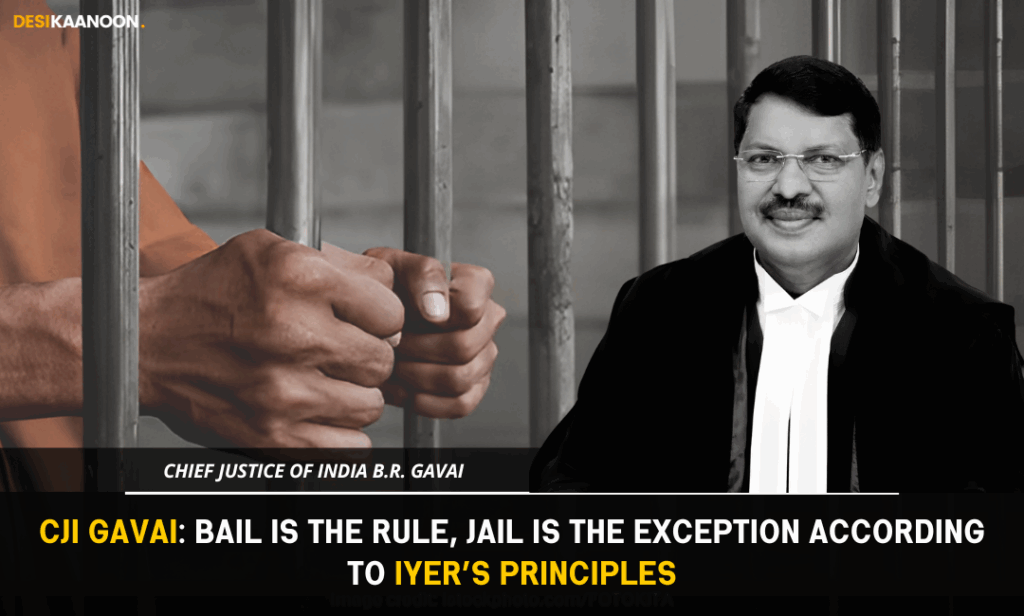Manisha Yadav
Chief Justice of India, B.R. Gavai, on July 6, 2025, addressed a gathering during the 11th Justice V.R. Krishna Iyer Memorial Law Lecture held in Kochi. In a compelling speech, he lamented the recent neglect of the essential legal principle that “Bail is the Rule, Jail is the Exception,” a concept that demands a more vigorous adherence by courts across the country.
The Chief Justice was reflecting on the significant contributions of the late Justice V.R. Krishna Iyer, a legendary figure in the Indian judiciary known for his progressive stance on bail and individual rights.
CJI Gavai underscored the importance of this principle by citing his involvement in several high-profile cases, including those of Prabir Puryakastha, Manish Sisodia, and K. Kavitha, all of which took place in 2024. Puryakastha was arrested by the Delhi Police under the Unlawful Activities (Prevention) Act (UAPA), while Sisodia, a prominent leader of the Aam Aadmi Party, and Kavitha, a leader of the Bharat Rashtra Samithi (BRS), faced charges related to the controversial Delhi liquor scam. In these cases, the Supreme Court benches, led by Justice Gavai, scrutinized the legality of the arrests and the actions of the investigating agencies, which were criticized for their handling of the cases.
CJI Gavai remarked that “Bail is the rule, and jail is the exception. In the recent past, this principle has been somewhat forgotten.” He expressed satisfaction in having been able to reiterate this vital legal tenet in his recent judicial work.
CJI Gavai elaborated on Justice Iyer’s groundbreaking approach, particularly in the landmark case of Gudikanti Narasimhulu v. High Court of Andhra Pradesh (1978) 4 SCC 740. Iyer famously opened his order with the question, Bail or Jail and proceeded to outline a thorough examination of relevant factors, such as the duration a defendant had already spent in detention and the anticipated timeline for their appeal. He advocated for the granting of bail with appropriate protective and curative conditions, strongly opposing the imposition of onerous bail conditions that disproportionately affected the poorer.
CJI Gavai further highlighted Justice Iyer’s pioneering contributions to Public Interest Litigation (PIL), noting how he transformed the jurisprudence surrounding it by abandoning traditional ‘Locus Standi’ norms and promoting epistolary litigation. This innovative legal framework allowed public-spirited citizens to file PILs on behalf of those who could not advocate for themselves due to socio-economic constraints. Gavai noted that this profound legal evolution catapulted the Supreme Court into significant global prominence and continues to effect transformative changes in the lives of numerous individuals across the nation.
Instagram: Click Here.
LinkedIn: Click Here.
For Collaboration and Business: info.desikaanoon@gmail.com

